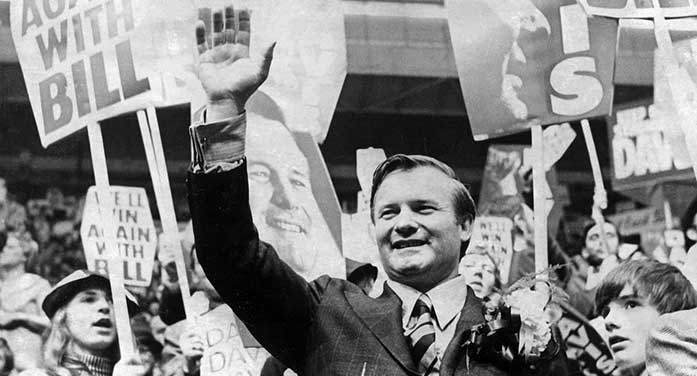 Bill Davis, the former Ontario premier, died on Aug. 8. He was the first Conservative I ever voted for. It happened in the October 1971 provincial election.
Bill Davis, the former Ontario premier, died on Aug. 8. He was the first Conservative I ever voted for. It happened in the October 1971 provincial election.
My previous trip to the polls – in 1968 to vote for Pierre Trudeau’s federal Liberals – had been an enthusiastic occasion. Not this time. Davis wasn’t the kind of guy to inspire much of that and neither was his Ontario government. But given the choices, my vote seemed the most prudent course.
Ontario was doing well and I’d started to question my previous default assumption that more and bigger government was always appropriate. And although Davis was in no sense a small government guy, he did seem to acknowledge the need for some degree of fiscal and regulatory modesty, even if it was just in comparison to the expressed appetites of his opponents.
Born in Toronto, Davis entered elective politics in 1959 as a Progressive Conservative member of the Ontario legislature. It was a heady time for the party, then just 16 years into what became a 42-year dynasty. As far as provincial politics were concerned, they ruled the roost.
Davis didn’t languish long on the backbenches. John Robarts, who became premier in 1961, appointed him minister of Education the following year and subsequently added the role of minister of University Affairs.
 It seemed to be the best of times. Ontario’s economy was robust, revenues flooded into the provincial treasury and, if the project was deemed right, there was no compunction about spending the money.
It seemed to be the best of times. Ontario’s economy was robust, revenues flooded into the provincial treasury and, if the project was deemed right, there was no compunction about spending the money.
Robarts was the sort of politician who liked to build things. There were funds for new universities and a community college system, new schools, inter-regional public transit and much more.
And thanks to the post-Second World War baby boom, education became a particular spending priority, even something of a fiscal sacred cow. As the point man and public face for the portfolio, Davis enjoyed ample visibility.
So when Robarts decided to leave politics, Davis became the odds-on favourite for the premier’s job. But he almost came a cropper at the February 1971 leadership convention. Despite overwhelming party establishment support, it took him four ballots to eke out a three-point win.
Times were also changing.
The economic boom that characterized the 1960s gave way to a patchier, more volatile environment in the 1970s. On top of that, the political temper of Ontario began to shift. The world that Davis faced wasn’t the same as that of his predecessors.
He went to the polls as premier four times, winning two majorities and two minorities. After he left in 1985, the dynasty that had reigned since 1943 crumbled.
Those with a philosophical right-of-centre disposition often found Davis a disappointment. In several respects, his governments were seen as almost indistinguishable from what one might have expected from the Liberals. What was the point in voting for someone like that?
The answer, to the extent that there is one, is a counter question: What’s the alternative?
The late American conservative William F. Buckley was no ideological slouch. He believed in pushing public policy as far to the right as circumstances permitted. This involved two things.
First, you vigorously participated in policy debate with a view to expanding the general acceptability of your views. In political science discourse, this is now called shifting the Overton window.
Then when it came to elections, you made a practical choice. Rather than insisting that all ideological boxes be checked, Buckley would “support the rightward most viable candidate.”
Bottom line: you needed to elect and re-elect. A half-loaf was better than none. And as Buckley’s friend – and one-time trade union leader – Ronald Reagan observed, you could pocket your wins and subsequently go back for more.
Looking at the back-to-back, right-of-centre Mike Harris majorities in the 1990s, the argument is made that a similarly inclined leader could’ve done the same during the Davis years. And maybe that’s true.
But it’s also possible – perhaps even likely – that Harris benefited from a reaction to the excesses of the preceding Liberal/NDP decade. He was a corrective, not a permanent prescription.
In any event, Davis was who he was: a pragmatic centrist. It’s hard to escape the conclusion that, for better or worse, his sense of what Ontario wanted was on the money.
Troy Media columnist Pat Murphy casts a history buff’s eye at the goings-on in our world. Never cynical – well, perhaps a little bit. For interview requests, click here.
The views, opinions and positions expressed by columnists and contributors are the authors’ alone. They do not inherently or expressly reflect the views, opinions and/or positions of our publication.
© Troy Media
Troy Media is an editorial content provider to media outlets and its own hosted community news outlets across Canada.


